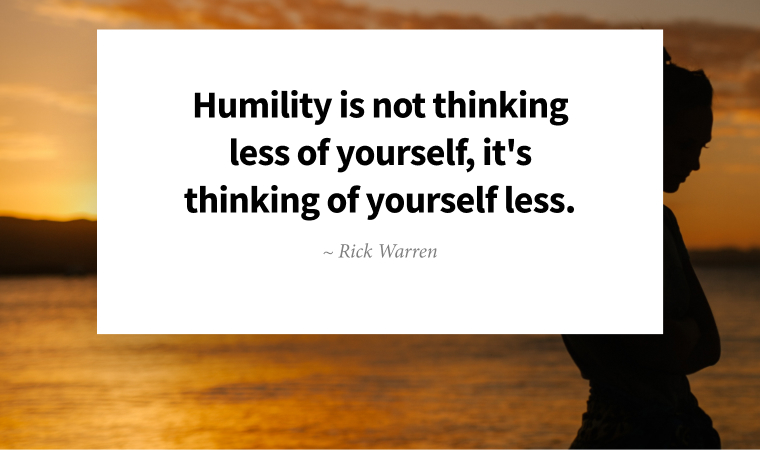
Have you read about longevity-obsessed billionaires? If not, click away: here, here, and here for anti-aging secrets of the mega-rich. 🤣
These folks are all about physical and cognitive longevity, making me wonder: what about emotional longevity? How can you develop the resilience and adaptability necessary to accept an ever-changing world if you cling to a way of thinking that gave you the hubris to believe you can indefinitely delay death?
You don’t need $1B to aspire to a long, healthy life. But if you plan to live harmoniously with others, persist in the face of failure, and pursue long life learning, then you’ll need another element in the mix: humility.
Leggo Your Ego
Many ancient cultures, from the Greeks to the Chinese, held humility as a core virtue. Today, a growing body of psychological research points to intellectual humility as critical to individual growth and creating a functioning society where collaboration trumps contention.
Humility has fallen by the modern wayside thanks to the perception it’s the same as meekness or weakness. But science proves it has the opposite effect.
One common misperception is that having intellectual humility involves never trusting yourself — but it’s closer to the truth to say that intellectual humility is about correctly calibrating the strength of your beliefs to the evidence you’ve gathered and the limitations you face.
The benefits of cultivating this type of humility include helping you become more tolerant, resilient, and flexible — with yourself and others. It also supports elastic thinking (“Beginner’s Mind”) and curiosity, which are critical to enjoying a sense of shared humanity, regardless of differences of opinion.
Are You Ready to Humble?
Humility 101 is accepting that you don’t know everything. But this can be challenging, especially at midlife, when we’re supposed to have many, if not all, of the answers. Plus, confirmation bias, where we believe what we already know is true, is deeply ingrained by now.
Mindfulness is a surefire way to combat know-it-all-ness and enhance intellectual humility, as one of its primary functions is increasing awareness. Plus, it brings all the necessary ingredients for humble pie, including non-judgment, interdependence, compassion, and inquisitiveness. The practice also helps create a safe space to let your guard down.
In order to be willing to venture out of our bubble, to embrace our interconnectedness, and bravely encounter experiences and emotions that we routinely avoid (like uncertainty, fear, or shame), it is a necessity that we feel some degree of psychological or emotional safety to do so.
So, take it slow, and remember, building intellectual humility isn’t easy. But dismantling your habituated responses to the world to live not just a longer, healthier life but a more meaningful one, too, is a worthwhile, if humbling, endeavor.
Five Reasons Why Intellectual Humility Is Good for You (Greater Good)
The Power of Humility: Breaking Confirmation Bias for Deeper Connection, Compassion, and Learning (Mindful)
